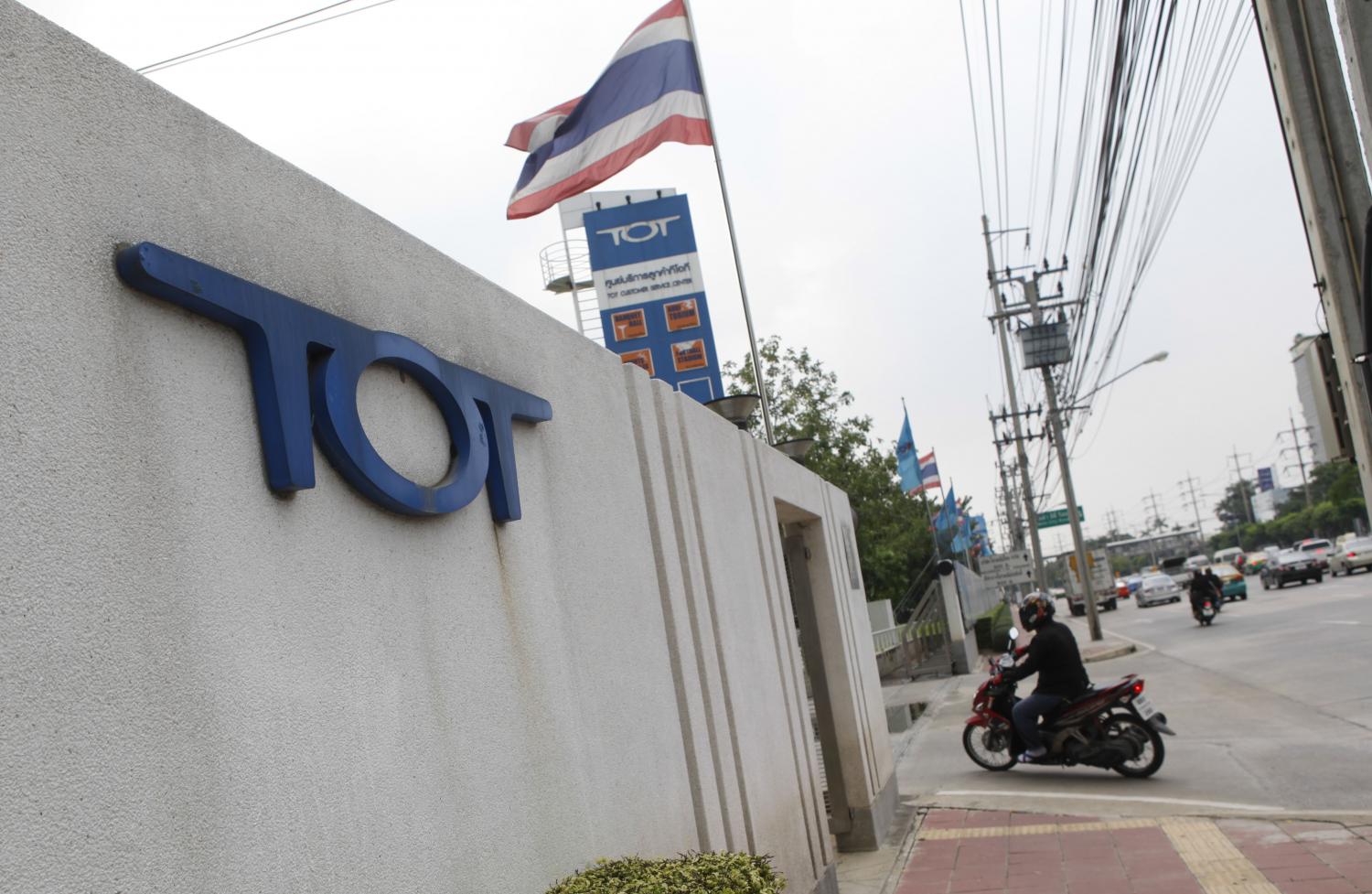
State telecom enterprise TOT says it has clinched a cooperation deal with Mu Space Corp, a Thai satellite and space tech startup, to venture into the low-earth orbit (LEO) satellite business as a potential revenue stream.
LEO satellites are projected by some to have strong business potential because they can beam the internet all around the globe.
The memorandum of understanding between TOT and Mu Space, which was signed last month, starts with a joint study and testing of program coding for server payload in rockets in a trial for signal transmission.
The move highlights TOT's ambitious plan to embark on global satellite business, with the initial step of providing a gateway station for the LEO satellite business before striving to own satellites through a consortium model in the future.
TOT also set up a working group to study and conduct a lab test for LEO satellite operations earlier this year, which consists of 60 TOT executives and staff as well as a small group of science-based high school students under the TOT academy.
TOT acting president Morakot Thienmontree said the LEO satellite development is seen as a revolution in mobility connectivity in the new economy, especially in the next 3-5 years, when the technology is expected to mature commercially worldwide.
"We do not want to miss this train of innovation," said Mr Morakot, adding TOT needs to create new revenue streams in the long run.
LEO satellites operate 500-2,000 kilometres above the earth's surface, compared to 36,000km for geostationary orbits. The advantage of LEO satellites is a low latency signal, which could benefit people with access to high-speed internet services via 5G tech as well as the use of Internet of Things devices, machine-to-machine tech, drones and applications that require high levels of accuracy, such as remote surgery.
LEO satellite projects are operated by two main companies: Space Exploration Technologies Corp (SpaceX) and London-based satellite internet access provider OneWeb.
A series of LEO satellites have been launched to the sky. They are expected to be broadly used worldwide in the next three years.
TOT started studying the LEO satellite business and has conducted program coding tests at TOT's satellite ground stations for months.
The cooperation with Mu Space includes trial program coding for server payload in rockets. Mu Space is responsible for booking payload quotas in the rockets for testing.
The test is needed to see the stability and related impact on the communication signal through the servers when rockets are launched and return to the firing base. This could be a start for TOT venturing into the LEO satellite business.
TOT has one satellite gateway station in Bangkok and another in the Northeast.
"The LEO satellite business is compatible with 5G tech, but it could be a tech killer for traditional telecom infrastructure providers in the future," said Mr Morakot.
Telecom infrastructure providers could capitalise on the LEO satellite network through signal transmission between satellites, gateway stations and ground data centres, he said.
If the "cloud storage" concept in space happens with data servers launched, this would mean trouble for gateway stations, cellular network and fibre-optics providers, Mr Morakot said.
"The LEO satellite business could offer free broadband internet to the mass market, which would be a breakthrough, and this would be hard for any broadband operators to compete against," he said.
In June, SET-listed Thaicom and CAT Telecom formed a joint venture to provide satellite gateway services and solutions as well as marketing for the sale of LEO satellites in Cambodia, Laos, Myanmar and Vietnam.
The joint venture, called Nation Space and Technology, has registered capital of 10 million baht.
Thaicom holds a 75% stake, while CAT holds 25%.
Mr Morakot said as CAT and TOT are scheduled to fully merge into National Telecom in January next year, the joint venture should be a leg up for the entity in pursuing LEO satellite business.